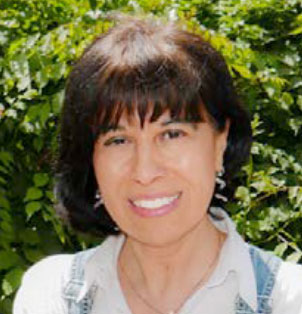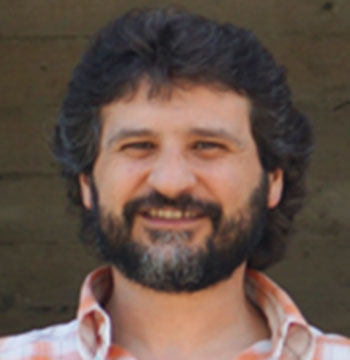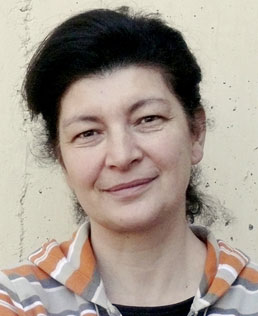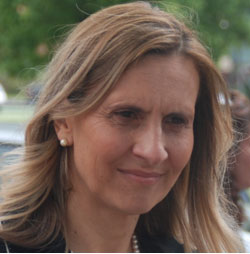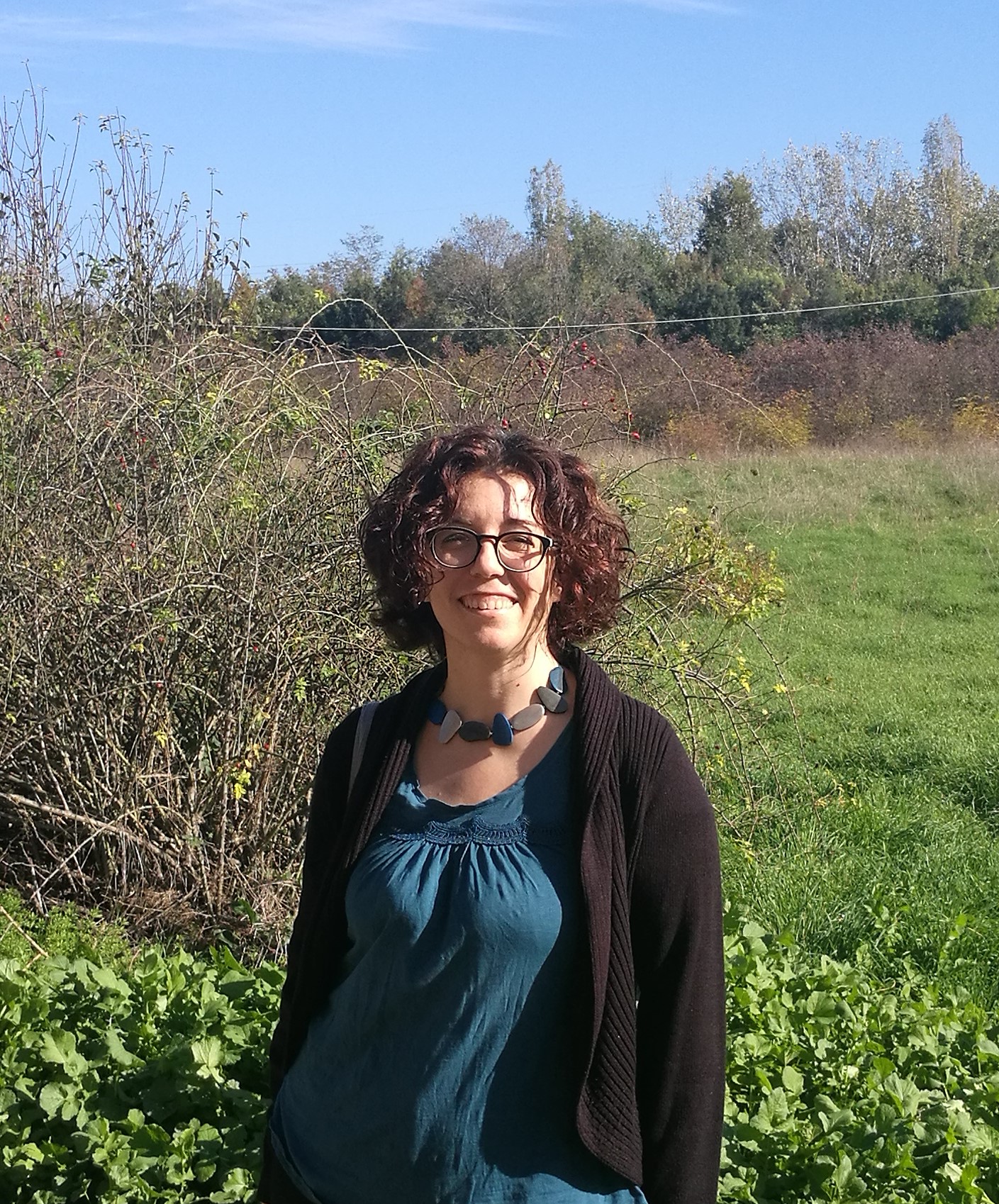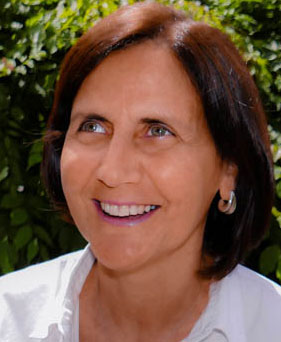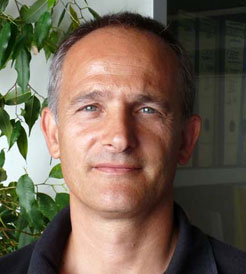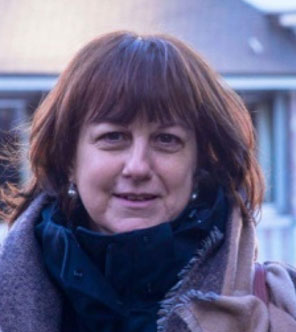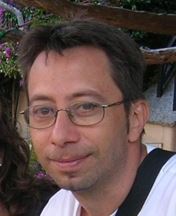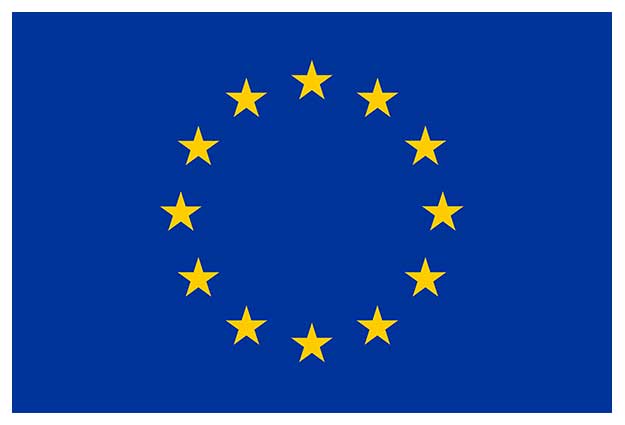Partner's general description and participants
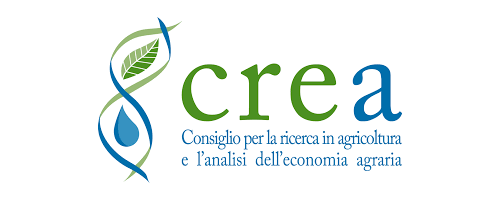
Council for Agricultural Research and Economics
www.crea.gov.it
CREA is the main Italian organization for Research in Agriculture; the activity is devoted to basic and applied research in all the fundamental topics covering plant ,animals and agricultural economics; it is organized in 12 Research Centres devoted to studies on cereals, horticulture, tree crops, floriculture, biomass, medicinal plants and important plant-to product lines like olive oil and wine. The research cover also all the transversal fields (agronomy, pathology, culture techniques, genetic improvement, biotechnology, system biology and many others). Specifically, the Research Centre for Plant Protection and Certification (CREA-DC), one of the 12 research centres and part of CREA, deals with the protection of agricultural and forestry plants against biotic (bacteria, fungi, viruses, viroids, phytoplasmas, insects, mite, nematodes, etc.) and abiotic (physiological disorders, adverse climatic conditions) agents. It studies the plant-pathogen interaction, pathogen population epidemiology and characterization by both traditional and biomolecular methods for disease control. It studies natural sources of genetic resistance and tolerance to pests to be applied to the development of resistant varieties/lines through the use of conventional and biotechnological methods. It studies the crops protection under conventional production methods, integrated and organic farming. It provides for the establishment of diagnostic methods useful in the prevention of diseases; it defines the techniques and methods of treatment which may minimize the occurrence of pesticide residues in foods and in the environment. It provides for the establishment of suitable techniques aimed at eliminating systemic pathogens in the propagation material. Moreover the CREA-DC owns a collection of microorganisms and reference pathogenic isolates (www.colmia.it).
Role and participation in the project
As above reported, one of the main aspect that characterized the CREA-DC is the development and validation of tools for the detection and identification of plant pathogens. In fact CREA-DC is the Italian National reference laboratory in charge to set up official diagnostic protocols, to train personnel by organizing specific courses and run official diagnostic analysis to detect the presence of quarantine pathogens; the diagnostic laboratory of CREA-DC is accredited "ACCREDIA" according to the UNI/ISO EN 17025 for the detection of bacteria, viruses, viroids and fungi (http://services.accredia.it/accredia_labsearch.jsp). CREA-DC has been the Coordinator of two National Projects (ARNADIA and ASPROPI) that dealt on the validation of diagnostic tools. In the frame of these projects, the CREA-DC has organized more than 20 Test Performance Study (TPS) with the participation of laboratories of the National plant protection service, of the University, of Research centre and private. Moreover the CREA-DC has took part at different Proficiency tests organized by European Institutions. The role and contribution of the CREA-DC to the Project will focus precisely on the experience gained in the validation of diagnostic protocols, execution and organization of TPS and the provision of reference pathogen isolates.
Participants
Francesco FAGGIOLI
Scientist
Francesco Faggioli is a senior scientist and plant virologist of CREA - Research Centre for Plant Protection and Certification (Rome, Italy). He has more than 30 years of experience in the study of viruses, viroids and diagnostic tools. He has organized several TPS for diagnostic protocols. He is member of the Panel EPPO on diagnostics in virology and phytoplasmology and an EPPO Expert of the Working group on the Regulated Non-Quarantine Pest.
He is the Responsible of the CREA-DC Accredited laboratory for the diagnosis of plant pathogens (DIA-LAB) managed according ACCREDIA TR-08 UNI CEI EN ISO / IEC.
He has published more than 90 peer reviewed papers
Francesco is native Italian speaker and speaks fluent English
Maria ARAGONA
Researcher
Maria Aragona is a biologist, with a specialisation in biotechnology. She started her career in plant pathology working on diseases caused by seed-transmitted and soil-borne fungal pathogens. Her work is dedicated to detect and characterize fungal pathogens by using molecolar methods, to study population structure of fungi and their interaction with host plant by means of genetic and genomic approaches.
Maria is native Italian speaker and speaks fluent English
Luca FERRETTI
Scientist
Luca Ferretti is an agronomist. In 2001 he started work at the current CREA - Research Centre for Plant Protection and Certification (Rome, Italy) as plant virologist and phytoplasmologist.
He has more than 15 years of experience in the study and diagnosis of phytoplasmas and viruses of agronomic importance crops. In the field of diagnosis, he is actively involved in the validation of protocols for the detection of viruses and phytoplasmas.
In 2017 he joined the accredited laboratory ‘DIALAB’ operating within the Centre, as Quality Manager.
Luca is native Italian speaker and speaks fluent English
Vincenza ILARDI
Senior Researcher
Vincenza Ilardi is a senior researcher at CREA-Research Centre for Plant Protection and Certification”, Italy. She is a biologist working on molecular plant virology, production of biotechnological plants resistant to viruses, risk assessment for GM plants and recently, on ‘Candidatus Liberibacter spp.’, setting up and validating diagnostic protocols. She is a member of the: i) EPPO (European and Mediterranean Plant Protection Organization) Panel “Diagnostics and Quality Assurance”; ii) working group “Biotechnology” of the National Italian Committee for “Codex Alimentarius”; and iii) roster of experts on biosafety of living modified organisms (LMOs), established by the Conference of the Parties to the CBD in the frame of the Cartagena Protocol on Biosafety.
Vincenza is native Italian speaker and speaks English.
Stefania LORETI
Stefania Loreti of Council for Agricultural Research and Agricultural Economy Analysis, Research Centre for Plant Protection and Certification, CREA-DC Rome,
Dr Stefania Loreti, biologist with more than 25 years of experience as plant pathologist.
From 1992-1997 before as scientist at the Research Centre for Plant Protection and Certification, CREA-DC Rome.
She has deeply contributed to developing molecular tools for the diagnosis (detection, identification and quantification) of plant pathogens (virus, viroids, and bacteria), the diagnostic protocols validation, the study of the genetic diversity of bacterial populations, the characterization of pathogenicity determinants and biological control strategies.
Responsible of the area ‘Bacterial Diseases of tree species’ accredited laboratory for the diagnosis of plant pathogens (DIA-LAB) managed according ACCREDIA TR-08 UNI CEI EN ISO / IEC 17025 referred to Pseudomonas syringae pv. actinidiae detection protocol.
Component of the “Technical and Scientific Committee on Xylella fastidiosa”, Italian Mipaaf.
She has coordinated the national interlaboratory study for the validation of several protocol for the detection of quarantine plant pathogenic bacteriain the frame of national (Clavibacter michiganensis subps. michiganensis, Xanthomonas arboricola pv. pruni, Erwinia amylovora, Xylella fastidiosa) and international Project (Pseudomonas syringae pv. actinidiae) . Has partecipated to several Proficiency test/interlaboratory tests (Ralstonia solanacearum, clavibacter michiganensis subsp. sepedonicus, Xylella fastidiosa, Pantoea stewartii, Acidovorax citrulli, Xanthomonas vesicatoria, X. euvesicatoria, X. gardneri, X.perforans, ) in the frame of national (MIPAAF founded) orinternational EUPHRESCO Projects.
She has contributed as expert to the draft of the PM7/24 (2) Xylella fastidiosa and contributed to developement of the PM7/120(1) Pseudomonas syringae pv. actinidiae.
She has published more than 60 peer reviewed papers.
Stefania is native Italian speaker and speaks fluent English
Marta LUIGI
Graduated in 2006 in biotechnology at the "La Sapienza" University of Rome, Marta has been working at the Research Centre for Plant Protection and Certification (Rome) since 2006. She obtained a Ph.D. in "Biology applied to agri-food and forest systems" at the University of Reggio Calabria in 2011. Since 2019, she is employed in a permanent position as technical collaborator at the Research Centre for Plant Protection and Certification.
Over the years she has gained experience in the field of molecular diagnosis and characterization of viruses and viroids. In particular, she dealt with the molecular diagnosis of olive viruses, viroids on fruit trees and ornamental plants, evaluation of their incidence, epidemiology and their molecular characterization through field investigations. In addition, she has often been interested in the development of new diagnostic methodologies for detection of viruses and viroids.
She is co-author of 20 indexed scientific articles and a chapter of a book on diagnosis of viroid by amplification. Since 2015 she has been part of the organization chart of the "DIALB" phytopathology laboratory accredited ISO:17025 for the diagnosis of viruses, viroids, bacteria and fungi present in the Research Centre for Plant Protection and Certification - Rome office.
Marta is native Italian speaker and speaks fluent English
Nicoletta PUCCI
Scientist
Nicoletta Pucci obtained her degree in Agricultural Sciences at the University of Studies of Pisa on 1991 and in the same University she got her PhD, Curriculum Plant Pathology. From 1998 she works at the CREA of Rome and her research activities has focused on the bacterial diseases of horticultural and tree species with particular attention to the diagnosis of plant pathogenic bacteria through the application of classical, serological and molecular methods. The research activities of Dr. Pucci, carried out in the framework of several national and international research projects, also concerned the harmonization and validation of diagnostic protocols through the organization and participation in test performance study attempted by several scientific institutions, in accordance with EPPO diagnostic indications.
Nicoletta is native Italian speaker and speaks fluent English
Luca RICCIONI
Senior Researcher
Luca Riccioni is a plant pathologist. Since 1992 he has worked as researcher at the CREA-DC in Rome. His field of specialization is the study of fungal diseases of herbaceous and arboreal plants. In particular, his studies deal with:
i) the epidemiology of seedborne fungal diseases of cereals and legumes, and the use of natural compound as alternative for seed treatment;
iii) the development of innovative methods to detect fungi subjected to regulation (certification or quarantine);
iv) the genetic and physiological variability of fungal populations for diagnostics and taxonomic goals.
Luca is native Italian speaker and speaks fluent English
Valeria SCALA
Researcher
Valeria Scala is a plant pathologist with a PhD in Agrochemistry and Agrobiology.
On 1st December 2015 she starts working as researcher for Council for Agricultural Research and Economics – Research Center for plant protection and Certification (CREA-DC). Since 2016, she is a member of the working group for the bacterial pathogen Pantoea stewartii subsp. stewartii referring to “Ministero delle Politiche Agricole e forestali”
From September 2011 up to November 2015 Valeria worked in Sapienza University of Roma as researcher and adjunct Professor in Plant Pathology on fungal cereal diseases and fungal genomics, including mycotoxins control by biopesticides.
Valeria worked for 3 years in the French multinational company BioMerieux as Specialist in Molecular Biology diagnosis.
Valeria spent her post doc at University of Vienna at Faculty of Chemical Engineer as member of plant disease biocontrol group and at CRA QCE as part of the mycotoxin detection group.
Valeria is native Italian speaker and speaks fluent English
Laura TOMASSOLI
Senior Researcher
Laura Tomassoli. Her decades experience and expertise is on viral disease in horticultural and ornamental crops. Her activity will encompass all activity dealing with emergent viruses (i.e begomoviruses) including optimisation of diagnostic techniques (serological and molecular); validation of protocols; participation to test performance study and proficiency tests.
She is Responsible of the area ‘Viruses disease’ accredited laboratory for the diagnosis of plant pathogens (DIA-LAB) managed according ACCREDIA TR-08 UNI CEI EN ISO / IEC 17025 referred to Pepino mosaic virus and Plum pox virus detection protocols.
She has published more than 90 peer reviewed papers
Laura is native Italian speaker and speaks fluent English
Salvatore VITALE
Researcher
Salvatore Vitale is a plant pathologist. Since 1997 he has worked at the CREA-DC in Rome. He has become a permanet researcher since 2013.
His field of specialization of study mainly concerns soil-born fungal pathogens with reference to the genus Phytophthora (oomycetes) and Fusarium.
He is involved in the following studies:
i) take part in Italian National Project on selection for resistance of Juglans species towards P.cinnamomi (causal agent of Walnut decline) as rootstock;
ii) complex diseases of nuts with particular reference as Hazelnut and Walnut;
iii) diagnosis fungal pathogens in collaboration with Regional Phytosanitary Service for validation of protocols of important quarantine pathogens and quality patogens;
iv) the morphological and genetic variability of fungal populations for diagnostics and taxonomic goals.
Salvatore is native Italian speaker and speaks very little English.


